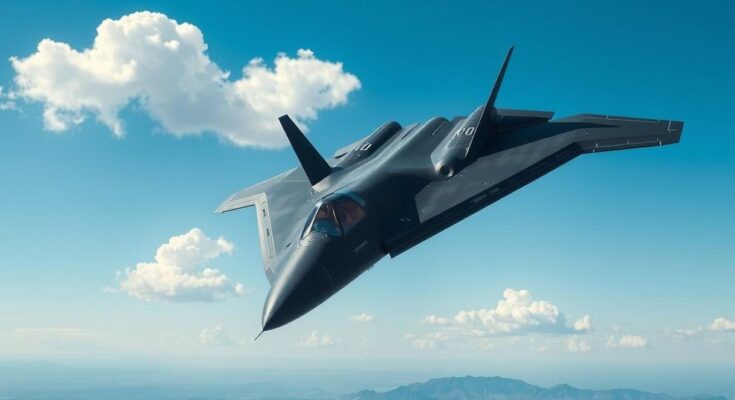Israel is expected to require U.S. assistance for military operations against Iran’s nuclear facilities, considering that such campaigns demand advanced military capabilities like stealth bombers. Diplomatic agreements could also mitigate tensions, but military force remains an option. Comprehensive airstrikes would be essential but could face challenges against Iran’s defenses.
Israel would rely on United States support to effectively target Iran’s underground nuclear facilities. This military operation necessitates sustained cruise missile strikes and powerful bunker-busting bombs. However, the potential actions by both nations may be limited in scope during a concentrated air campaign, as Iran is capable of enriching uranium sufficient for nuclear weaponry within mere weeks.
The United States’ options to mitigate Iran’s nuclear ambitions include reestablishing a diplomatic agreement like the one previously abandoned by President Donald Trump or employing significant military force. Trump articulated his preference for a diplomatic approach, stating, “There are two ways Iran can be handled, militarily or you can make a deal. I would prefer to make a deal,” during a recent interview.
The prospect of a deal appears grim, as evidenced by escalating tensions following U.S. military actions against Iran-aligned forces in Yemen. Following these developments, Trump warned that any attacks linked to Iran would be treated seriously, further intensifying the situation. Israel might contemplate pre-emptive military actions, but experts suggest that these would demand U.S. air support given the complexities associated with attacking Iran’s fortified facilities.
Military analysts indicate that joint airstrikes would be necessary to neutralize Iran’s nuclear capabilities effectively. In particular, they note the requirement of specialized munitions such as the GBU-57 Massive Ordnance Penetrator, which is typically delivered by the Northrop B-2 Spirit stealth bomber. Such military hardware has proven effective in previous operations against hardened targets, showcasing its strategic importance in potential conflicts.
Ryan Bohl of RANE asserted that a coordinated attack by Israeli and U.S. forces would offer valuable insights into military capabilities against similarly equipped adversaries like Russia and China. The continued dialogue around Iran’s nuclear advancements has captured significant attention, culminating in discussions within the United Nations Security Council about Iran’s rapid uranium enrichment.
Joint military drills between U.S. and Israeli air forces, including a large-scale exercise known as Juniper Oak, have illustrated their preparedness for potential conflicts. This undertaking involved heavy aerial bombardments and provided crucial operational insights into possible scenarios of collaborative military action.
Although Israel maintains a sophisticated fleet of advanced fighter jets, it lacks heavy bombers capable of carrying large bunker buster munitions essential for striking deep underground targets like Natanz and Fordow. The Natanz site has been reinforced against attacks, making it particularly challenging to damage effectively with existing weaponry. This necessitates a strategic combination of airstrikes targeting Iran’s capabilities and defenses.
Simultaneous airstrikes would require a comprehensive military campaign, integrating various methods such as cyberattacks and special operations alongside conventional munitions. Israel’s previous operations have already demonstrated its ability to damage Iran’s air defense systems, and further U.S. involvement could lead to significant operational advantages.
Although Iran’s military may be outclassed in capability, analysts caution that there are still inherent limitations to what U.S. and Israeli forces could achieve in a short period. Furthermore, Iran’s substantial ballistic missile arsenal poses a genuine threat that could potentially overwhelm U.S. bases and compel Israel to utilize its missile defenses more extensively.
There exists a possibility that even a formidable military assault may not incapacitate all of Iran’s nuclear material production capabilities. Bohl suggests that, after sustained bombing, Iran could rebound from damage and restore its nuclear infrastructure. Thus, a joint operational campaign would likely be unprecedented in its scale and technological sophistication, as highlighted by the New Lines Institute’s Heras, who remarked on the historical significance of a potential joint military initiative against Iran’s nuclear program.
In summary, a future conflict involving Israel and Iran’s nuclear program may necessitate significant American military support, particularly through the use of advanced bomber capabilities. Diplomatic solutions remain a preferred avenue for consideration, while military analysts underscore the complexities and potential consequences of conducting air operations against well-fortified Iranian nuclear facilities. Joint military exercises have indicated preparedness for such scenarios, although potential retaliation from Iran maintains a genuine threat to regional stability.
Original Source: www.businessinsider.com




